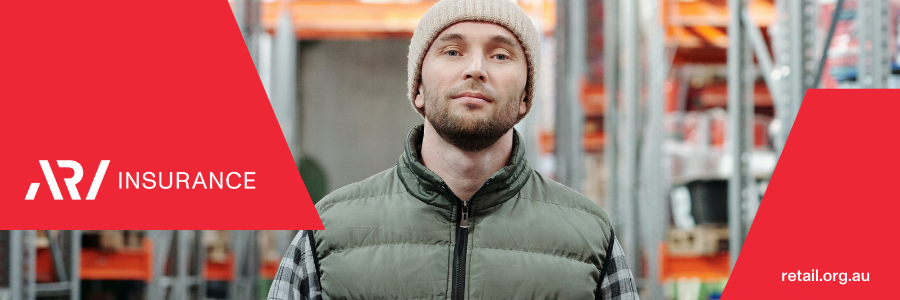The past two years have seen an unprecedented array of new challenges to many retailers leading to a lot of uncertainty about how to navigate return to work operations. Many retailers have understandable concerns for their employees in the re-opening and returning to work since the COVID19 pandemic.
Changes to workplace practices, procedures or the environment and the recommencement of operations following a shutdown introduces a number of new risk factors that may arise for potential incidents and liability.
There are many risks that may affect the health and safety of a retailer’s workers, both directly and indirectly. Employers have specific legal obligations to protect the health and safety of everyone in their workplace, including employees and anyone who steps into a retail store. This includes eliminating risks or implementing what is reasonably practicable.
What are the current and emerging Workplace Health and Safety risks for retailers?
- Physical injury: Fatigue due to return to work or the busy period, manual handling or accidents
- Mental health: Adjustments due to stress of COVID19, returning to work or the busy period.
- Violence and aggression: Bullying, harassment, discrimination due to increase in frustration during busy times, or due to COVID19 related issues.
- COVID19 compliance and worker safety: Issues surrounding staff shortages, infection control and increased foot traffic and workloads.
What tips can we follow to mitigate risk?
Consult with your employees and involve them in actively supporting mitigation of health and safety issues can result in a safer workplace. Being involved in making decisions can give people a stronger commitment to implementing them and reporting potential risks early on. Regular communication on health and safety can also build co-operation and trust between employers and employees.
What should we assess when considering the risks in our retail operations?
- Likelihood of the hazard or risk occurring: the greater the likelihood of a risk occurring, the greater the significance of this factor when weighing up all matters and determining what is reasonably practicable.
- Degree of harm that might result from the hazard or risk: the greater the degree of harm that might result from the hazard, the more significant the risk will be. Where the degree of harm that might result from the risk or hazard is high, a control measure may be considered reasonably practicable even if the likelihood of the hazard or risk occurring is low.
- Current knowledge or education about the hazard or risk: This must take into account what the duty holder actually knows and what a reasonable person in the duty holder’s position would reasonably be expected to know to minimise or eliminate the risk.
- Availability and suitability of ways to eliminate or minimise the risk: requires consideration of what is available and suitable for the elimination or minimisation of risk
- Costs associated with the available ways of eliminating or minimising the risk: consideration can be given to whether the cost of implementing a control measure is grossly disproportionate to the risk when considering both direct and indirect costs associated with a claim.
- How to respond to incidents: what to do to minimise the risk to harassment between workers, and customers in acts of violence, aggression and harassment and what is required to do at the time of and immediately after should an incident occur.
How can businesses ensure they are actively supporting their employees and their customers in relation to COVID19?
The COVID19 vaccines play an important part to help protect people by preventing serious health effects of COVID19 in the person who is vaccinated, if they are infected with the COVID19 virus. However, a vaccinated person may still unknowingly carry and spread the virus to others around them, including workers and others in their workplace. Because of this, even if your workers are vaccinated, to meet your duties under the model WHS laws and minimise the risks of COVID19 in your workplace, you must continue to implement all other reasonably practicable COVID19 control measures.
When a businesses is responding to workplace incidents such as a worker has tested positive to COVID19, or is responding to concerns raised by workers, health and safety representatives, or others at the workplace, this can cause significant cost to business and have direct negative impact on employees.
Ways you can minimise risk of COVID19 infection and related issues:
- ensuring your workers do not come to work when unwell
- practising physical distancing
- improving ventilation, where appropriate
- practising good hygiene
- increasing cleaning and maintenance, and
- wearing masks.
How can we actively prepare ourselves, employees and customers for a safe environment and protect our business?
Mitigating risk related to Workers Health and Safety is vital to minimising incidents. Applying the right training, risk management and insurance requirements is the best way to manage these risks effectively.
ARA Insurance partner Marsh, alongside Recovre can guide you through the legal requirements, attract and retain the right employees, manage risk, insure where necessary, and guide through any support should claims arise depending on your situation.
Contact the ARA Insurance team at Marsh on 1300 133 988 or at arainsurance@marsh.com to speak to them about developing an insurance and risk management program that aligns with your business risk requirements and appetite.
{{cta(‘e054ce73-c2be-4228-8a5a-3017e0cf6c3e’)}}

This webpage is not intended to be taken as advice regarding any individual situation and should not be relied upon as such. The information contained herein is based on sources we believe reliable, but we make no representation or warranty as to its accuracy. Marsh shall have no obligation to update this publication and shall have no liability to you or any other party arising out of this publication or any matter contained herein.





















